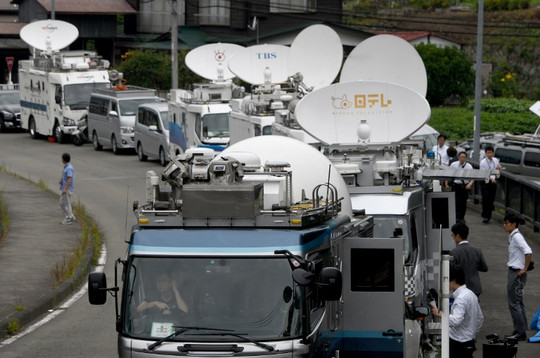The International Federation of Journalists (IFJ) joins its affiliate, the Japan Broadcasting Labour Union (NIPPORO) in calling for change in the working conditions of journalists in Japan, after the Labour Standards Supervision Office ruled Miwa Sado died from overwork. The IFJ and NIPPORO call for changes to labour laws to regulate work hours.
On October 4, the Labour Standards Supervision Office ruled that Miwa Sado, a 31-year-old reporter with NHK, Japan’s public broadcaster, died from karoushi – a Japanese term for dying from overwork. In the two months prior to her death, she has clocked 146 and 159 hours of overtime, working until midnight nearly every night covering the Metropolitan Assembly Election and Upper House Election in Tokyo. Miwa died on July 2013 of congestive heart failure, three days after the second election.
Karoushi is a phenomenon in Japan that sees most workers, clocking more than 80 hours of overtime a month. The Labour Standards Supervision Office said the Miwa’s death was a direct result of her work life. In a statement to Asahi Shimbun, the Office said: “She was under circumstances that she could not secure enough days off due to responsibilities that required her to stay up very late. It can be inferred that she was in a state of accumulated fatigue and chronic sleep deprivation.”
NHK has received widespread criticism for failing to disclose Miwa Sado’s death to employees. NHK said that withheld the information, to support the bereaved family. Following Miwa’s death, NIPPORO has worked with NHK to improve working conditions, particularly through controlling the number of overtime hours worked.
NIPPORO president Masatoshi Nakamura said: “It is very difficult to grasp working hours of reporters as they work outside of their offices. However, we established a new system to track the hours more accurately. During discussions among union members and colleagues, they expressed their personal inner feelings. We take to our hearts the bereavement of the family members and will work towards betterment of working conditions of reporters.”
The IFJ said: “The government of Japan and employers need to take immediate steps to end the culture of karoushi. Employers and management should ensure that all staff have adequate time between shifts and are not working too many days in a row. We welcome the work by NIPPORO to improve working conditions at NHK, and call for the improvements to be employed across the industry.”
For further information contact IFJ Asia-Pacific on +61 2 9333 0946
The IFJ represents more than 600,000 journalists in 140 countries
Find the IFJ on Twitter: @ifjasiapacific
Find the IFJ on Facebook: www.facebook.com/IFJAsiaPacific

